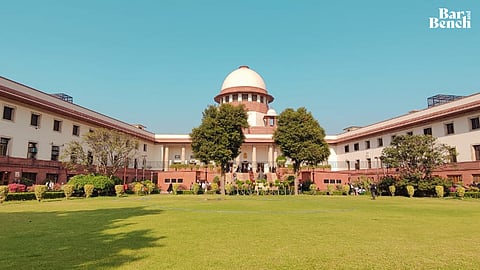
- News
- Columns
- Interviews
- Law Firms
- Apprentice Lawyer
- Legal Jobs
- हिंदी
- ಕನ್ನಡ

The Supreme Court on Monday observed that a court order lowering the age limit for the appointment of State Director General of Police (DGP) would not be in the interest of the police service [Prakash Singh v Union of India].